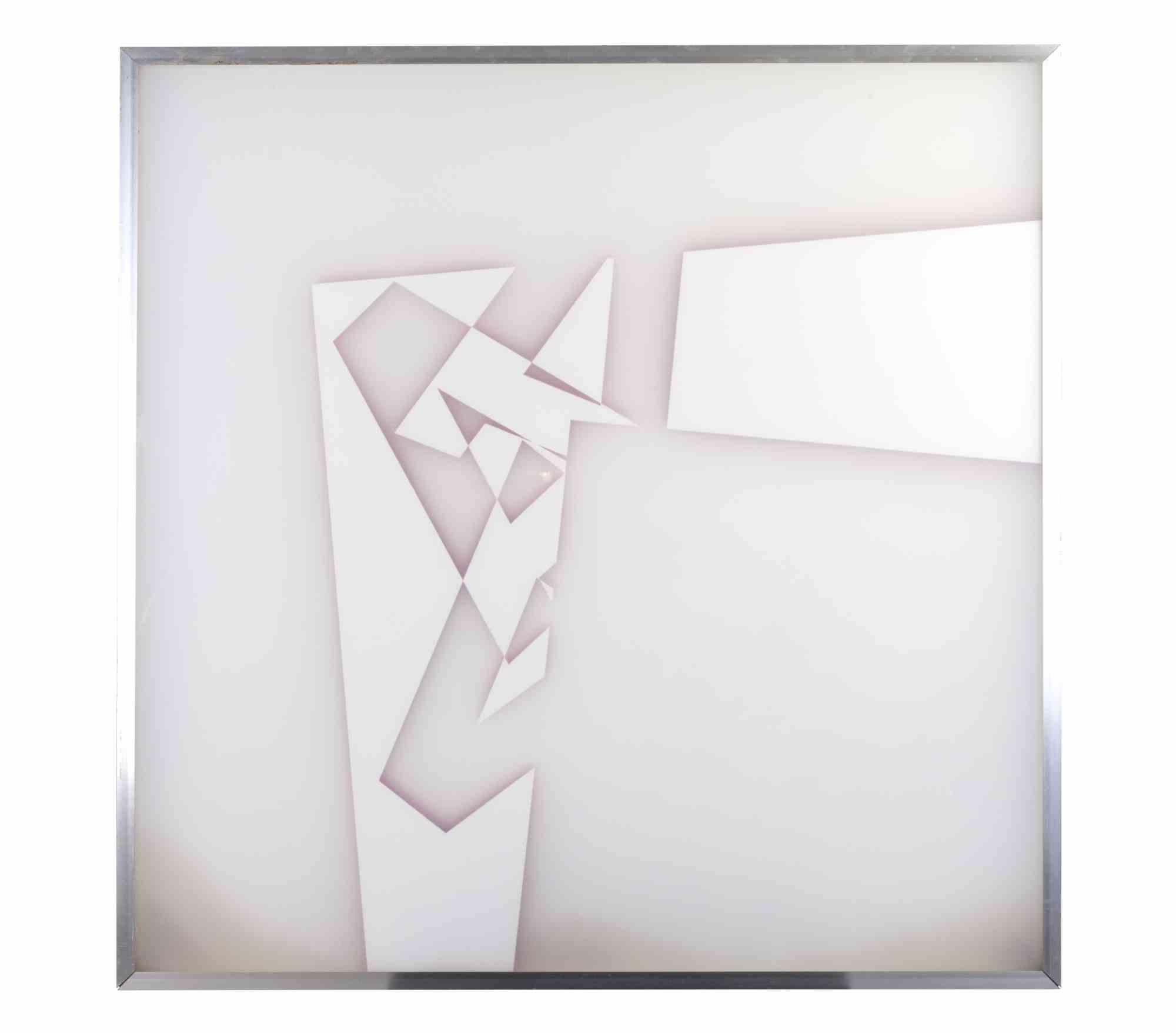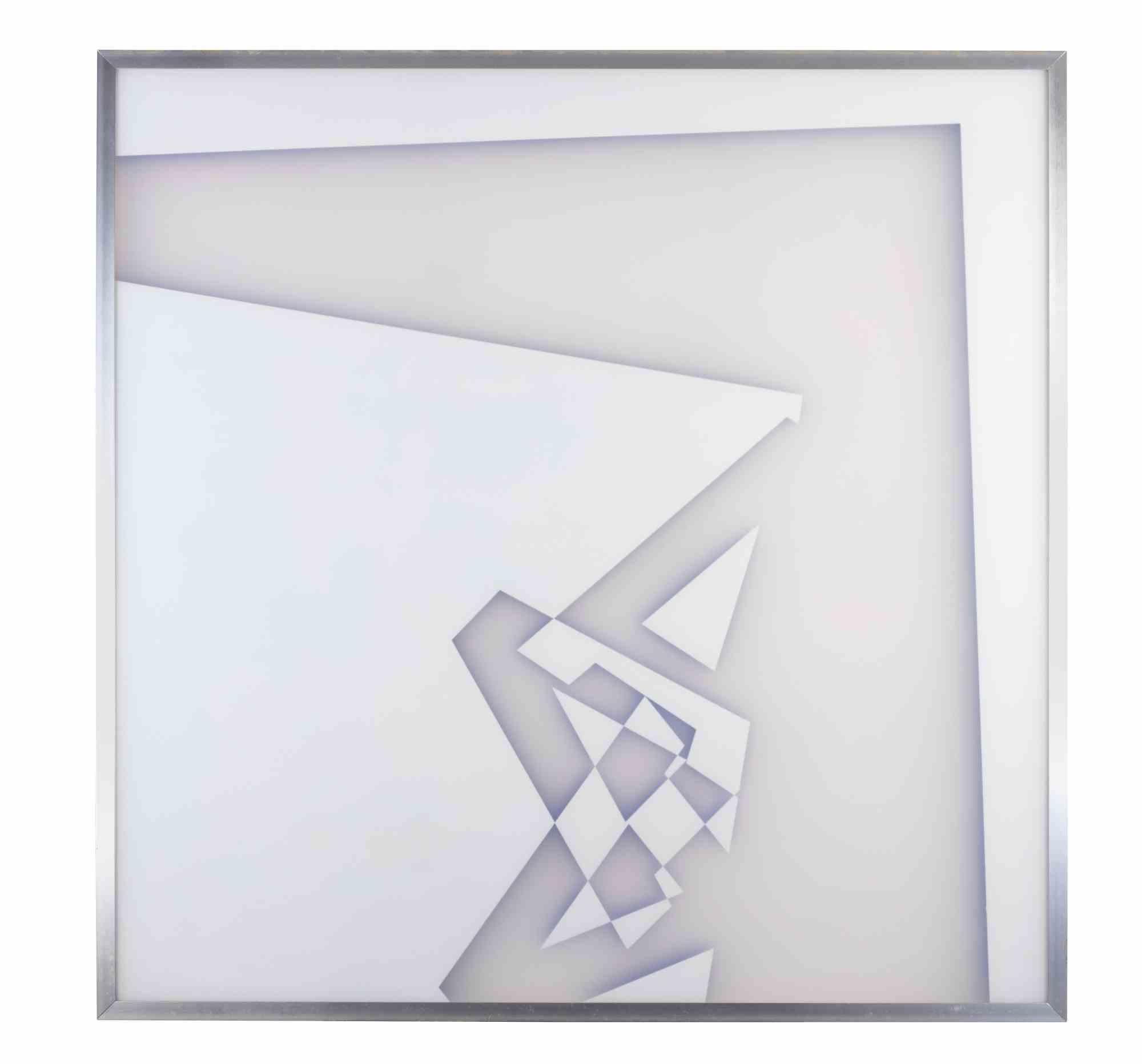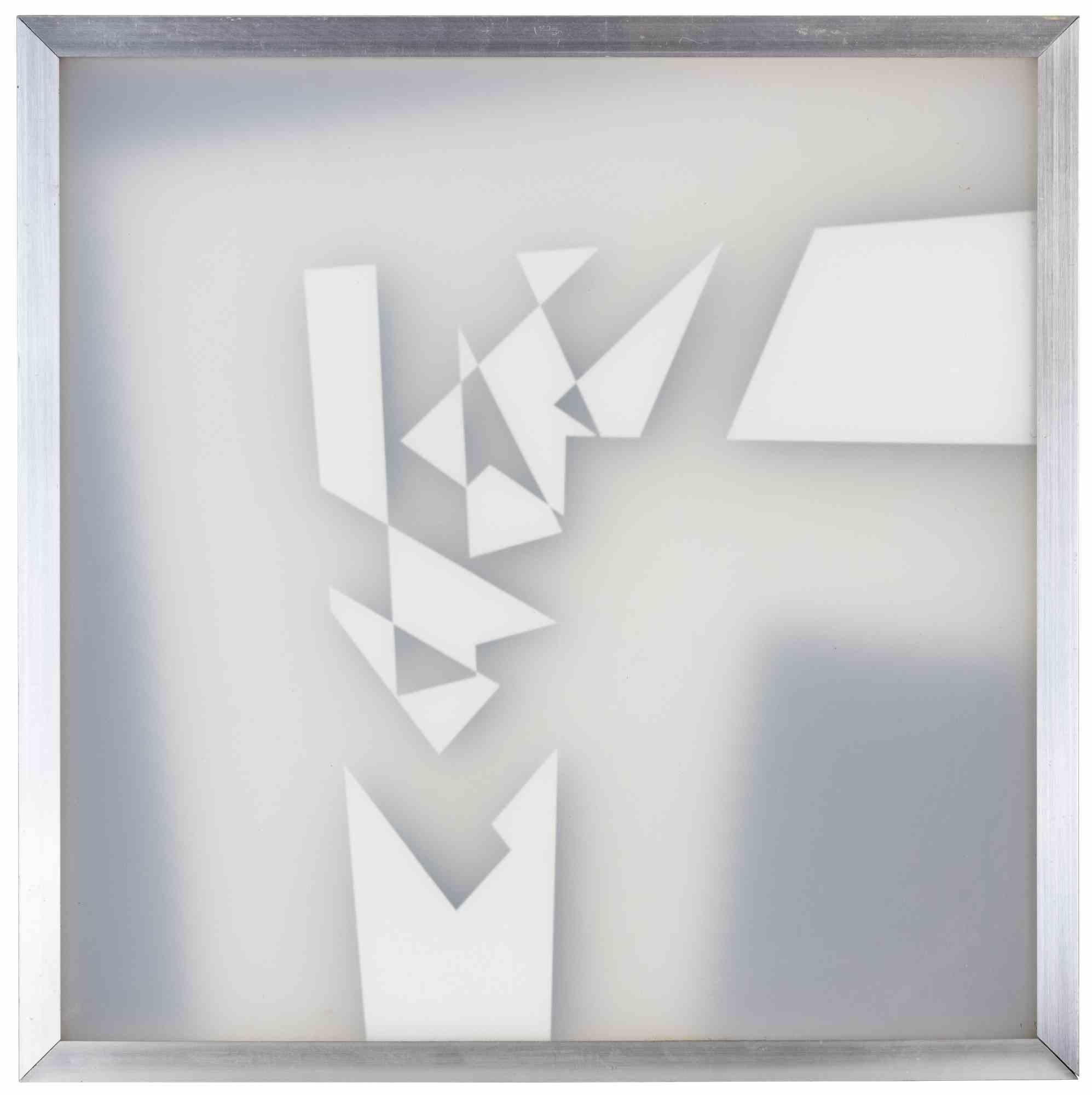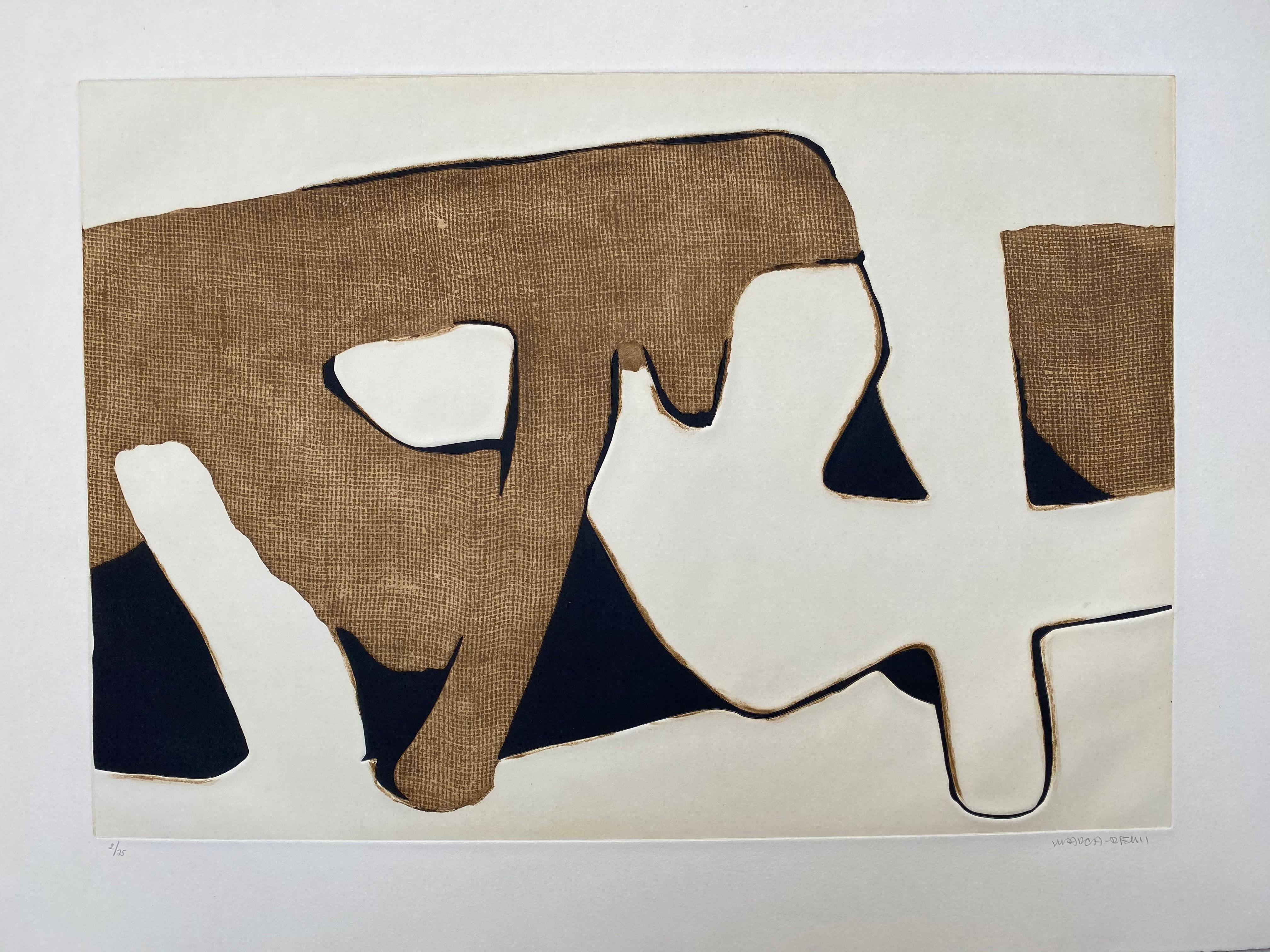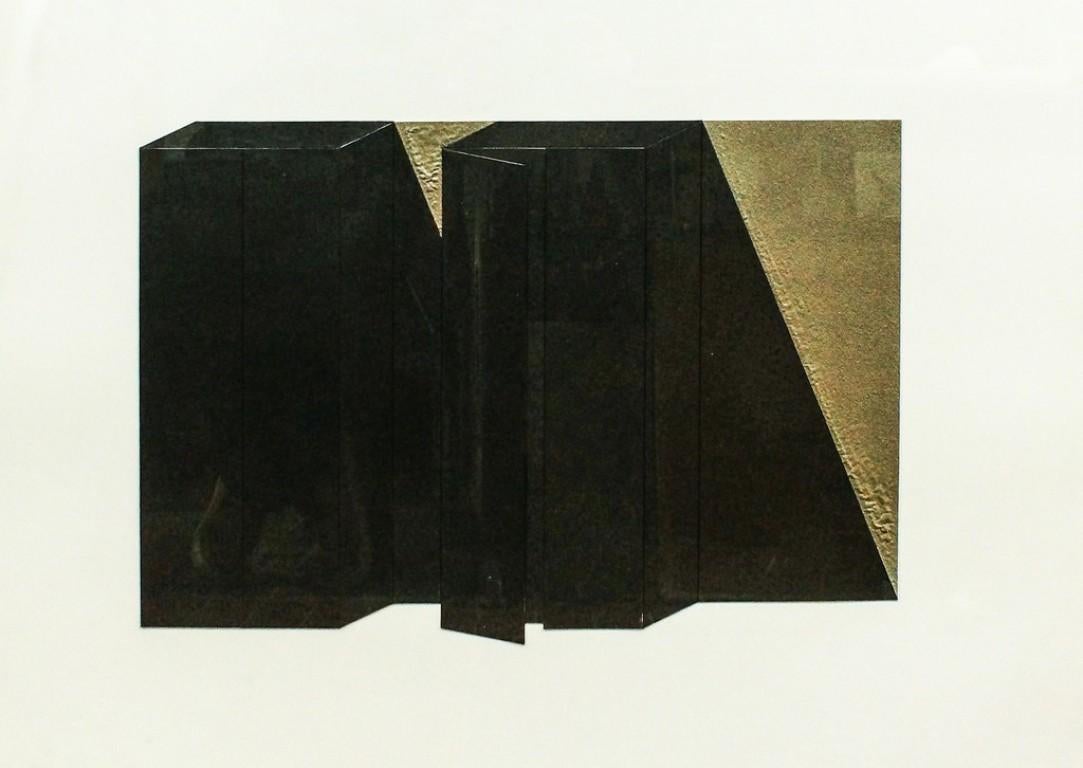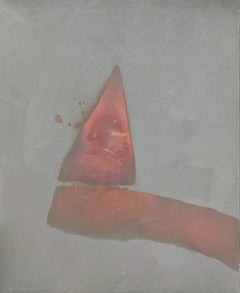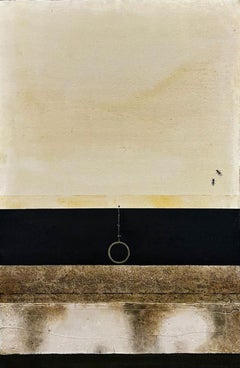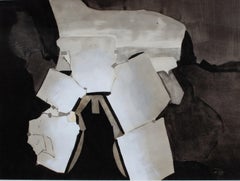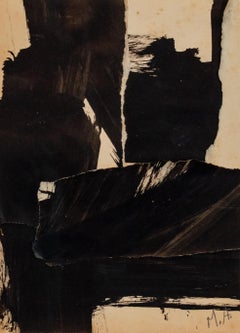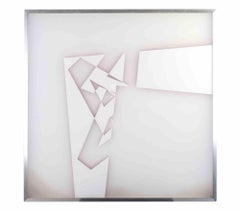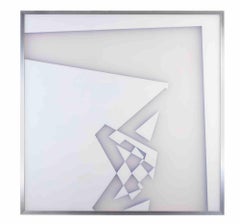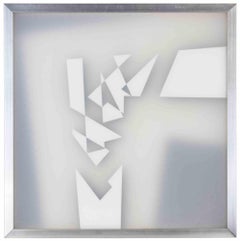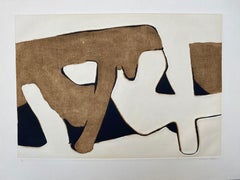Items Similar to "Lumen" Rudolf Baranik, 1975 Political Abstract Imagery Collage Composition
Want more images or videos?
Request additional images or videos from the seller
1 of 4
Rudolf Baranik"Lumen" Rudolf Baranik, 1975 Political Abstract Imagery Collage Composition1975
1975
$15,000
$25,00040% Off
£11,383.81
£18,973.0240% Off
€13,112.50
€21,854.1640% Off
CA$21,435.13
CA$35,725.2240% Off
A$23,524.85
A$39,208.0940% Off
CHF 12,132.43
CHF 20,220.7140% Off
MX$281,021.33
MX$468,368.8840% Off
NOK 153,740.35
NOK 256,233.9240% Off
SEK 144,061.86
SEK 240,103.1040% Off
DKK 97,925.69
DKK 163,209.4940% Off
About the Item
Rudolf Baranik
Lumen, 1975
Signed, titled, dated on the reverse
Collage on board
36 1/2 x 42 inches
Born in Lithuania, he immigrated to the United States in 1938, when his family sent him to live with a relative in Chicago. His parents were secular Jewish socialists and were killed by the Nazis during the Second World War. Baranik was well known in the art world for his political advocacy, and was one of the first artists to organize protests against the war in Vietnam. Some of his best known works are the Napalm Elegies, a series of 30 antiwar paintings created between 1967 and 1974. His art was inspired by his sense of the gross inequities around the world, and he led virtually every progressive political movement within the New York art world from the 1960s to the mid-1990s. Significant exhibitions and awards include:1981 Guggenheim Fellowship in Fine Arts, 1982 "Art Couples 1: May Stevens and Rudolf Baranik," P.S. 1, New York, NY, and 1966 Peace Tower. Baranik's art is included in many collections, including the Museum of Modern Art in New York, the Whitney Museum of American Art and the Hirshhorn Museum.
Baranik died in Eldorado, New Mexico in 1998.
The paintings of Rudolf Baranik are increasingly thought to be among the most important works of the New York School painting of the 1960s and 1970s, with the late paintings in particular considered by American art critic, Donald Kuspit, "the true climax of fifty years of Western abstract painting."
- Creator:Rudolf Baranik (1920 - 1998, Lithuanian)
- Creation Year:1975
- Dimensions:Height: 36.5 in (92.71 cm)Width: 42 in (106.68 cm)
- More Editions & Sizes:Unique WorkPrice: $25,000
- Medium:
- Movement & Style:
- Period:
- Condition:
- Gallery Location:New York, NY
- Reference Number:1stDibs: LU1841215579362
About the Seller
5.0
Platinum Seller
Premium sellers with a 4.7+ rating and 24-hour response times
Established in 2022
1stDibs seller since 2022
126 sales on 1stDibs
Typical response time: <1 hour
- ShippingRetrieving quote...Shipping from: New York, NY
- Return Policy
Authenticity Guarantee
In the unlikely event there’s an issue with an item’s authenticity, contact us within 1 year for a full refund. DetailsMoney-Back Guarantee
If your item is not as described, is damaged in transit, or does not arrive, contact us within 7 days for a full refund. Details24-Hour Cancellation
You have a 24-hour grace period in which to reconsider your purchase, with no questions asked.Vetted Professional Sellers
Our world-class sellers must adhere to strict standards for service and quality, maintaining the integrity of our listings.Price-Match Guarantee
If you find that a seller listed the same item for a lower price elsewhere, we’ll match it.Trusted Global Delivery
Our best-in-class carrier network provides specialized shipping options worldwide, including custom delivery.More From This Seller
View All"Untitled, " Daniel Lergon, German Contemporary Abstract Painting
Located in New York, NY
Daniel Lergon (German, b. 1978)
Untitled, 2012
Oil on canvas
47 1/2 x 39 1/2 inches
Signed and dated on the reverse
Provenance:
Galerie Christian Lether...
Category
2010s Contemporary Abstract Paintings
Materials
Canvas, Oil
"Untitled" Larry Calcagno, Trompe-l'œil Mixed-Media Minimalist Composition
By Larry Calcagno
Located in New York, NY
Larry Calcagno
Untitled
Mixed media on canvas
36 x 23 1/3 inches
Lawrence Calcagno, better known as Larry, was an artist who gained notoriety during t...
Category
20th Century Modern Figurative Paintings
Materials
Canvas, Mixed Media
"Cronus View from the Cave" David Hare, Abstract Surrealist Composition
By David Hare
Located in New York, NY
David Hare
Cronus View from the Cave, 1971
Graphite, Ink wash, Paper Collage on Paper on Board
25 x 33 inches
“Freedom is what we want,” David Hare boldly stated in 1965, but then he added the caveat, “and what we are most afraid of.” No one could accuse David Hare of possessing such fear. Blithely unconcerned with the critics’ judgments, Hare flitted through most of the major art developments of the mid-twentieth century in the United States. He changed mediums several times; just when his fame as a sculptor had reached its apogee about 1960, he switched over to painting. Yet he remained attached to surrealism long after it had fallen out of official favor. “I can’t change what I do in order to fit what would make me popular,” he said. “Not because of moral reasons, but just because I can’t do it; I’m not interested in it.”
Hare was born in New York City in 1917; his family was both wealthy and familiar with the world of modern art. Meredith (1870-1932), his father, was a prominent corporate attorney. His mother, Elizabeth Sage Goodwin (1878-1948) was an art collector, a financial backer of the 1913 Armory Show, and a friend of artists such as Constantin Brancusi, Walt Kuhn, and Marcel Duchamp.
In the 1920s, the entire family moved to Santa Fe, New Mexico and later to Colorado Springs, in the hope that the change in altitude and climate would help to heal Meredith’s tuberculosis. In Colorado Springs, Elizabeth founded the Fountain Valley School where David attended high school after his father died in 1932. In the western United States, Hare developed a fascination for kachina dolls and other aspects of Native American culture that would become a recurring source of inspiration in his career.
After high school, Hare briefly attended Bard College (1936-37) in Annandale-on-Hudson. At a loss as to what to do next, he parlayed his mother’s contacts into opening a commercial photography studio and began dabbling in color photography, still a rarity at the time [Kodachrome was introduced in 1935]. At age 22, Hare had his first solo exhibition at Walker Gallery in New York City; his 30 color photographs included one of President Franklin Roosevelt.
As a photographer, Hare experimented with an automatist technique called “heatage” (or “melted negatives”) in which he heated the negative in order to distort the image. Hare described them as “antagonisms of matter.” The final products were usually abstractions tending towards surrealism and similar to processes used by Man Ray, Raoul Ubac, and Wolfgang Paalen.
In 1940, Hare moved to Roxbury, CT, where he fraternized with neighboring artists such as Alexander Calder and Arshile Gorky, as well as Yves Tanguy who was married to Hare’s cousin Kay Sage, and the art dealer Julian Levy. The same year, Hare received a commission from the American Museum of Natural History to document the Pueblo Indians. He traveled to Santa Fe and, for several months, he took portrait photographs of members of the Hopi, Navajo, and Zuni tribes that were published in book form in 1941.
World War II turned Hare’s life upside down. He became a conduit in the exchange of artistic and intellectual ideas between U.S. artists and the surrealist émigrés fleeing Europe. In 1942, Hare befriended Andre Breton, the principal theorist of surrealism. When Breton wanted to publish a magazine to promote the movement in the United States, he could not serve as an editor because he was a foreign national. Instead, Breton selected Hare to edit the journal, entitled VVV [shorth for “Victory, Victory, Victory”], which ran for four issues (the second and third issues were printed as a single volume) from June 1942 to February 1944. Each edition of VVV focused on “poetry, plastic arts, anthropology, sociology, (and) psychology,” and was extensively illustrated by surrealist artists including Giorgio de Chirico, Roberto Matta, and Yves Tanguy; Max Ernst and Marcel Duchamp served as editorial advisors.
At the suggestion of Jacqueline Lamba...
Category
1970s Abstract Abstract Paintings
Materials
Paper, Ink, Graphite
"Untitled" Mary Abbott, Abstract Expressionist Collage, Ninth Street Women
By Mary Abbott
Located in New York, NY
Mary Abbott
Untitled, circa 1953
Signed with initials lower right
Oil and torn paper collage
17 x 14 1/2 inches
Provenance:
Thomas McCormick Gallery, Chicago
Private Collection, New York (acquired directly from the above)
Exhibited:
Athens, Georgia, Georgia Museum of Art, Suitcase Paintings...
Category
1950s Abstract Expressionist Mixed Media
Materials
Paper
"Untitled (C82-142)" Hannelore Baron, Mixed Media Collage, Abstract
By Hannelore Baron
Located in New York, NY
Hannelore Baron
Untitled (C82-142), 1982
Signed and dated on the reverse
Mixed media collage
Sheet 12 1/4 x 10 1/2 inches
Provenance:
Manny Silverman ...
Category
1980s Abstract Mixed Media
Materials
Fabric, Paper, Mixed Media, Laid Paper
"Untitled" Edward Zutrau, 1963 Post-Painterly Abstract Expressionist Painting
Located in New York, NY
Edward Zutrau
Untitled, 1963
Signed and dated on stretcher verso "5/63"
Oil on canvas
8 3/4 x 10 3/4 inches
Edward Zutrau is among the American artists who worked within the whirlw...
Category
1960s Abstract Expressionist Abstract Paintings
Materials
Canvas, Oil
You May Also Like
7416 - Mixed Media by Renato Spagnoli - 1974
Located in Roma, IT
7416 is an artwork made by the Italian artist Renato Spagnoli (Livorno, 1928-Livorno, 2019) in 1974.
Mixed media
Hand signed, titled and dated on the back
Category
1970s Abstract Mixed Media
Materials
Mixed Media
7437 - Mixed Media by Renato Spagnoli - 1974
Located in Roma, IT
7437 is an artwork made by the Italian artist Renato Spagnoli (Livorno, 1928-Livorno, 2019) in 1974.
Mixed media.
Hand signed, titled and dated on the back.
Category
1970s Abstract Mixed Media
Materials
Mixed Media
7552 - Mixed Media by Renato Spagnoli - 1975
Located in Roma, IT
7552 is an artwork made by the Italian artist Renato Spagnoli (Livorno, 1928-Livorno, 2019) in 1975.
Mixed media
Hand signed, titled and dated on the back
Category
1970s Abstract Mixed Media
Materials
Mixed Media
Conrad Marca-Relli Composition 5 - 1977
By Conrad Marca-Relli 1
Located in Saint Ouen, FR
Conrad Marca-Relli
Composition 5
2/75
Mixed media on guarro paper
Poligrafa Edition
Numbered out of 75 and signed in pencil by the artist
Circa 1977
Œuvre : 62 x 43,5 cm
77 x 56,5 ...
Category
1970s Abstract Mixed Media
Materials
Mixed Media
Conrad Marca-Relli Composition 5 - 1977
By Conrad Marca-Relli 1
Located in Saint Ouen, FR
Conrad Marca-Relli
Composition 5
2/75
Mixed media on guarro paper
Poligrafa Edition
Numbered out of 75 and signed in pencil by the artist
Circa 1977
77 x 56,5 cm
Perfect condition ...
Category
1970s Abstract Mixed Media
Materials
Mixed Media
Dimore - 1970s - Giuseppe Uncini - Collage - Contemporary
By Giuseppe Uncini
Located in Roma, IT
Original collage on paper by the italian artist Giuseppe Uncini, in excellent conditions and authenticated by the Archivio Opera Giuseppe Uncini in 2014.
Category
1970s Contemporary Abstract Drawings and Watercolors
Materials
Paper
